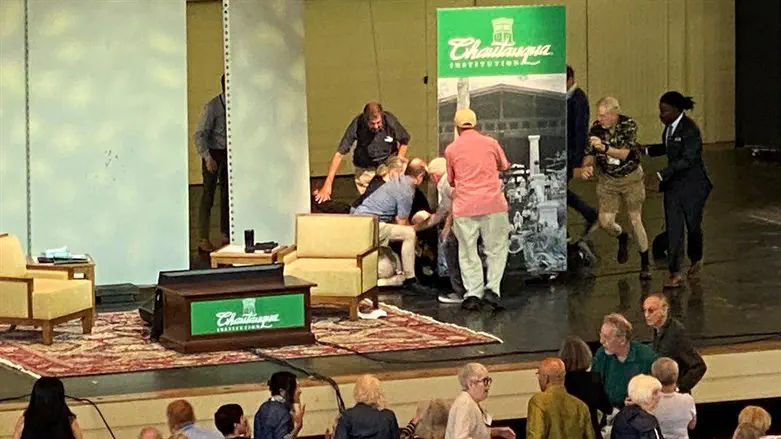
Author Salman Rushdie’s agent says that Rushdie has lost sight in one eye and the use of a hand as he recovers from a stabbing attack at an August literary event in western New York, The Associated Press reported on Sunday.
Literary agent Andrew Wylie told the Spanish language newspaper El Pais in an article published Saturday that Rushdie suffered three serious wounds to his neck and 15 more wounds to his chest and torso in the attack that took away sight in an eye and left a hand incapacitated.
After the attack, Rushdie was treated at a Pennsylvania hospital, where he was briefly put on a ventilator to recover from what Wylie told El Pais was a “brutal attack” that cut nerves to one arm.
Wylie told the newspaper he could not say whether Rushdie remained in a hospital or discuss his whereabouts.
“He's going to live ... That's the important thing,” Wylie said.
Eyewitnesses said that Rushdie was stabbed 10 to 15 times during the August attack. Rushdie fell to the floor immediately, as the attacker was restrained, they added.
Hadi Matar, 24, of Fairview, New Jersey, has been incarcerated after pleading not guilty to attempted murder and assault in the August 12 attack on Rushdie.
Speaking to The New York Post several days after the attack, Matar said he didn’t think the author would survive.
Matar wouldn’t say if he was inspired by the late Iranian supreme leader Ayatollah Ruhollah Khomeini issuing a fatwa, or edict, calling for Rushdie’s death in 1989.
“I respect the ayatollah. I think he’s a great person. That’s as far as I will say about that,” Matar replied, noting he only “read a couple pages” of Rushdie’s controversial novel.
Rushdie since 1989 has been the target of an Iranian fatwa calling for his murder for allegedly blaspheming Islam and its prophet Mohammed in his book "The Satanic Verses."
In 2012, an Iranian foundation added another $500,000 to the reward for killing Rushdie, raising the total bounty for his death to $3.3 million.
Rushdie spent a decade in hiding after Iran's spiritual leader, Ayatollah Ruhollah Khomeini, issued the 1989 fatwa against him for his book.
Although Iran's foreign ministry in 1998 assured Britain that Iran would do nothing to implement the fatwa, current supreme leader Ayatollah Ali Khamenei in January 2005 reaffirmed that Rushdie was considered an apostate whose murder was authorized under Islam.
